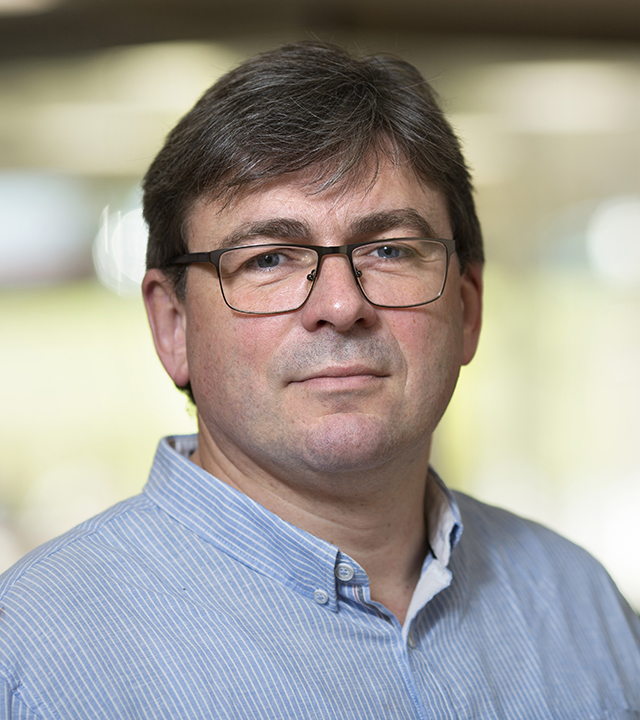Vladimir Matchkov

“We need to look at the brain as a complex vital organ whose function is not only a product of the activity in the nerve cells, but that the blood vessels also make an active contribution.”
Knowledge is found in cooperation
What role do the small blood vessels play in serious neurological disorders? PhD, DMSc and Professor Vladimir Matchkov, born in 1972 and raised in Russia, has been fascinated by cardiovascular physiology since upper secondary school, and the focal point of his research is therefore to find answers to the question above.
Unlike most of the other organs, our brains have no energy depots. The functioning of our brain cells and the very existence of these is therefore dependent on the appropriate amount of oxygen and nutrients being supplied along with the blood.
"This is only possible in a close collaboration between nerve cells and blood vessels, and takes place in both directions. That’s to say that the blood supply can affect the activity of the nerve cells, while the nerve cells determine their blood supply, so that it corresponds to their activity level," explains Vladimir Matchkov.
This interaction is called neurovascular coupling – and what this means is something that the researchers know a lot about; but what they know less about is the signal paths between nerve cells and blood vessels. The development of modern brain imaging techniques has contributed to understanding that blood vessels in the brain play a crucial role in neurological disorders. The next step for Vladimir Matchkov will be to characterise the signal paths that are responsible for neurovascular coupling and its pathological changes.
"We need to look at the brain as a complex vital organ whose function is not only a product of the activity in the nerve cells, but that the blood vessels also make an active contribution," he says.
And this is precisely why Vladimir Matchkov is working to establish collaboration between neuro- and metabolism researchers.
"I want to see blood vessels as an integrated part of the brain function, which can be just as important for neurological disorders as dysfunction in the nerve cells. I’m working on developing and implementing the neuro-vascular signal paths in new treatment strategies in diseases such as migraine, strokes, Alzheimer's, high blood pressure and diseases associated with diabetes," he adds.
Vladimir Matchkov’s research has received support from a number of research foundations and has also won awards from the European CardioVascular Research Council and at a number of international meetings and congresses.

“We need to look at the brain as a complex vital organ whose function is not only a product of the activity in the nerve cells, but that the blood vessels also make an active contribution.”